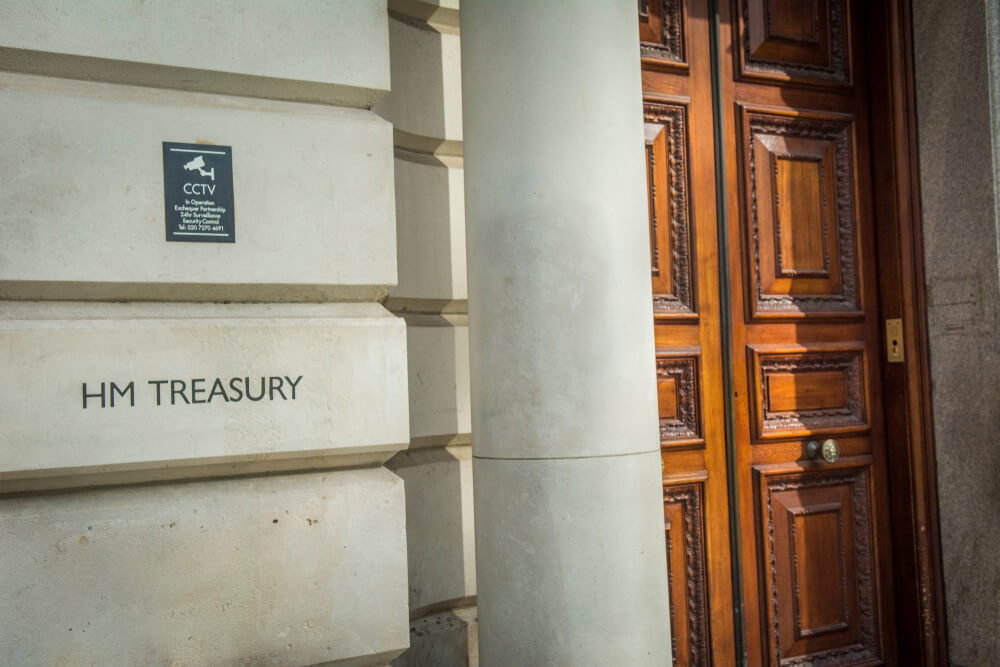If you have been researching your options for getting out of debt, you may have stumbled upon the HM Debt Management Office (DMO) and wondered whether it could help you repay what you owe and eventually become debt-free.
But what is the HM Debt Management Office and what is its central role within the UK government?
In this guide, we’ll explain what the HM Debt Management Office is, what the HM Debt Management Office does, if the HM Debt Management Office can help you with your debts and how you can manage your own debts for greater financial freedom.
What is the HM Debt Management Office?
The HM Debt Management Office (also known as the UK Debt Management Office) is an executive agency that is legally and constitutionally part of Her Majesty’s (HM) Treasury.
It was established in 1998 and marked the first time the responsibility of government debt was shifted from the Bank of England to the DMO which came just months after the operational responsibility for setting official UK interest rates was transferred from HM Treasury to the Bank of England.
The Chancellor of the Exchequer (the government’s chief financial minister) determines the policy and financial framework that the DMO should stick to and assigns to the Chief Executive operational decisions on debt and cash management.
What does the HM Debt Management Office do?
The DMO is tasked with a wide range of responsibilities relating to the government’s net cash flows but there are a number of additional duties it must also carry out. This includes:
- Financing the government’s various expenditure needs
- Overseeing the government’s day-to-day financial requirements
- Lending money to local authorities
- Managing certain public sector funds
It also deals with the general day-to-day management of the government’s debt management policy of minimising financing costs, assessing risks and determining the various cash needs of different departments.
What is debt management?
Put simply, debt management is a way of getting your outstanding debt under control by repaying what you owe and making better financial decisions. The ultimate goal of debt management is to help you lower your current debt level and take steps to avoid accumulating more debt.
There are various different options available for managing your debt and it is possible to undertake the task on your own but most people prefer to enlist the expert help of a financial expert to help them get their finances under control for good.
For example, a debt relief company will always have your best interests at heart and will be able to take a look at your financial situation so they can advise you on which debt solution you would benefit from the most. In most cases, clearing your debt through a debt solution will also mean you pay less than what you owe which will cost you less than managing your debt alone in the long run.
Can the HM Debt Management Office help me with my debts?
Whilst established with the sole aim of helping the UK government manage its debts, the HM Debt Management Office is unable to help individuals with personal debt or provide financial advice to people struggling with debt.
If you have unpaid debts you are struggling to repay, there are various debt management solutions available that could help you manage your debts and make better financial decisions for a debt-free future.
How can I manage my own debts?
Whether you are behind on your credit card bills or have missed monthly payments, getting the help you need to get you back on track can be the best decision you ever make. Depending on your financial situation, there are several options for dealing with personal debt:
Debt Management Plan
A Debt Management Plan (DMP) is a popular debt solution that can help you pay back your non-priority debt in monthly instalments. It is usually chosen by debtors that are struggling to afford their current repayment rate as agreed upon with their creditors but still have additional income left over after living expenses have been taken care of.
With a DMP, you will repay a portion of your total debt to your debt management company every month. They will then ensure each of your creditors is paid a certain percentage as previously agreed until the total amount has been paid.
However, because you will only be repaying a portion of the money you owe, your DMP will be listed on your credit report and your credit score will suffer as a result. It is also worth remembering that despite being in a DMP, your creditors can still contact you if they wish and demand alternative methods of payment.
Individual Voluntary Arrangement
Another option for dealing with debt is an Individual Voluntary Arrangement (IVA).
It also involves you repaying your debts in monthly instalments but unlike a DMP, an IVA is legally binding which means your creditors must respect the proposed terms and can’t take any further action against you whilst you are actively making payments.
The amount you pay will also be based on what you can comfortably afford and you will never pay more than your financial situation allows. This will also affect how long your IVA lasts with most lasting five years or less if you can afford a single lump sum.
Debt Relief Order
A Debt Relief Order (DRO) is another debt management solution that can help you write off your unaffordable debt within a reasonable amount of time.
They are a popular option amongst individuals with debts of less than £30,000 that have little to no spare income after living expenses and don’t own their home. They are also one of the quickest debt solutions with most debtors free from their debts within 12 months.
If you are left with less than £75 a month after household bills and living expenses have been accounted for, a DRO may be the best solution for you and your finances.




